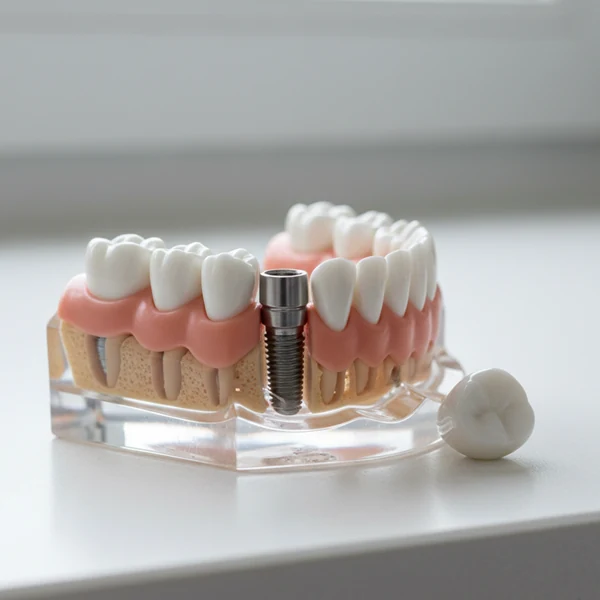Many people ask if a loose dental implant is an emergency. The answer depends on the cause, but in most cases, it needs fast care. A loose implant can lead to pain, infection, or bone loss if ignored. In this guide, you’ll learn everything about an emergency loose dental implant.
Table of Contents
ToggleIs It an Emergency If Your Dental Implant Feels Loose?
A dental implant in Phoenix, AZ, should never move or feel unstable. If you feel movement in the implant, something is wrong either above or below the gum. The problem might come from the crown, the screw, or the implant inside the bone. Even if it does not hurt, it is not safe to ignore it.
Here are the risks of a loose dental implant:
- Infection around the gums and bone
- Bone loss in the jaw
- Swelling or bleeding in the area
- Damage to nearby teeth
- Pain or pressure when chewing
- Complete implant failure
- More costly and complex treatment later
When Is a Loose Dental Implant an Emergency?
These signs show the implant may be failing or the bone support is weak, and you need emergency dental care in Phoenix, AZ. Getting help fast can stop the problem from getting worse and protect your health.
- Pain or pressure around the implant
- Swelling in the gums
- Red or bleeding gums
- Pus coming from the gums
- Bad taste or smell in the mouth
- Fever or feeling unwell
- Trouble chewing or biting
- Movement when you talk or eat
What to Expect at the Emergency Dentist’s Office for a Loose Dental Implant?
When you visit the dentist for a loose implant, they will check everything carefully. The goal is to find the problem and fix it as soon as possible. Here’s what to expect at the best dental clinic in Phoenix, AZ:
- The dental team will ask how your implant feels.
- They will check your mouth, gums, bite, and implant movement.
- They may take digital X-rays or 3D scans to see under the gums.
- The dentist will find the cause of the problem.
- If the crown or screw is loose, they will tighten or fix it.
- If there is bone loss or infection, they will plan the right treatment.
- The dentist will explain your options and help ease any pain or pressure.

Treatment Options to Fix a Loose Dental Implant
The treatment for a loose dental implant depends on what caused the problem. Some fixes are simple, while others take more time. The dentist will choose the best option to keep your mouth healthy and protect your implant.
Here is a simple guide to the treatment options:
Cause of the Problem | Treatment |
Loose crown or abutment | Dentist tightens or replaces the loose part |
Infection around the implant | Cleaning the area and prescribing antibiotics |
Bone loss under the implant | Bone grafting to rebuild support |
Serious damage or failure | Remove the implant and place a new one after healing |
Last Word
Dental implants should feel like natural teeth. They should not move or shift. If your implant feels loose, you must visit your dentist quickly. Waiting can lead to more serious damage, pain, or even complete implant failure. Whether a loose dental implant is an emergency depends on how serious the problem is, but most time it needs fast care.
FAQs
Why Would a Dental Implant Become Loose?
A dental implant becomes loose if the crown or screw is damaged. Bone loss around the implant can also weaken support.
What Are the Symptoms of Loose Dental Implants?
Symptoms include movement in the implant, pain while chewing, swollen gums, bleeding, or a bad taste in the mouth. You might also notice a clicking sound or pressure when you eat.
Can a Loose Dental Implant Be Saved?
Yes, in many cases, a dentist can save a loose dental implant. If the problem is only in the crown or screw, fixing it is simple. If there is infection or bone loss, the dentist may clean the area or rebuild the bone.
Can a Loose Implant Cause Pain?
Yes, a loose implant can cause pain in the jaw, gums, or nearby teeth. It might also feel sore or sensitive when you chew.


